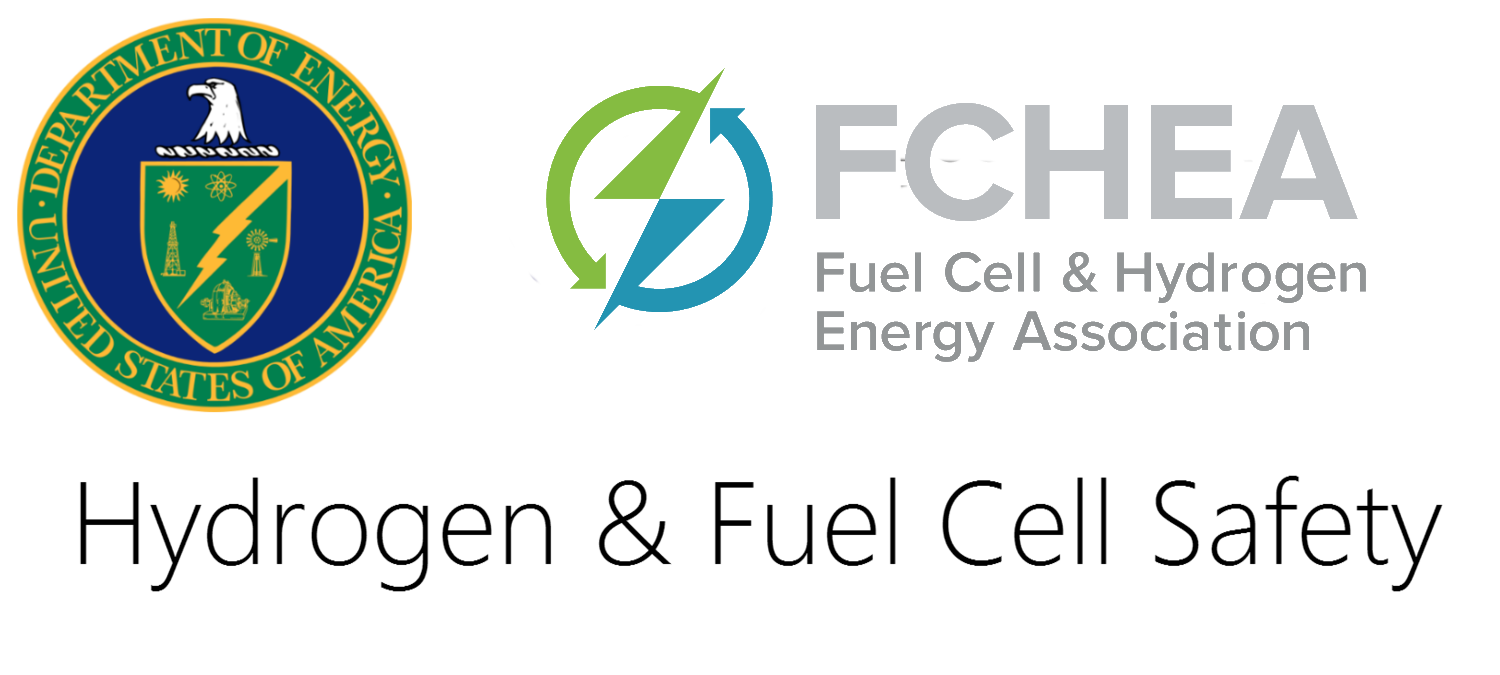November 2014 Safety Report
Invitation to Participate in Monthly Coordination
by Karen Hall, FCHEA
SAE Update
by Karen Hall, FCHEA
Stationary Power Systems Document Available for Review
by Karen Hall, FCHEA
Liquid Hydrogen Vehicle System Interface Document Feedback Requested
by Karen Hall, FCHEA
Improved Access to ISO standards Announced
by Karen Hall, FCHEA
NFPA Online Code Access Improvements
by Karen Hall, FCHEA
National Hydrogen and Fuel Cells Codes & Standards Coordinating Committee Teleconference - September, 2014 Minutes (PDF)
Connor Dolan, FCHEA
National Hydrogen and Fuel Cells Codes & Standards Coordinating Committee Teleconference - October, 2014 Minutes (PDF)
Connor Dolan, FCHEA
Invitation to Participate in Monthly Coordination
by Karen Hall, FCHEA
The National Hydrogen and Fuel Cells Codes and Standards Coordinating Committee (NHFCCSCC) provides a forum for effective communication and collaboration between all stakeholders in the hydrogen and fuel cells codes and standards community. Participation in NHFCCSCC monthly webinars facilitates the development of the consensus-based codes and standards that are critical to ensure public safety and to accelerate the commercialization of new hydrogen and fuel cell technologies for stationary, transportation and portable applications.
Administered by the Fuel Cell and Hydrogen Energy Association, these meetings provide a useful forum to keep updated on progress and discuss technical issues identified by the myriad codes and standards development organizations involved in developing and promulgating industry consensus standards and model codes and regulations.
Discussions support and encourage technical and operational consistency among and across the codes and standards developed by different organizations.
Approved minutes of meetings are posted in the Hydrogen and Fuel Cell Safety Report.
The community of stakeholders includes codes and standards developers, industry members, technology developers, codes and standards users, architects and engineers, legislative and regulatory bodies that adopt codes, standards and other regulations, safety officials, first responders, and the US Government including the USDOE, USDOT, US EPA, US DOC (particularly NIST), OMB, National Laboratories, hydrogen and fuel cell users and consumers, and others.
If you have an interest in participating in the monthly web-based meetings, please send your contact details with a request to join the NHFCCSCC to Connor Dolan (cdolan@fchea.org) to be added to the roster and receive meeting notices.
SAE Update
by Karen Hall, FCHEA
Two SAE documents, J2601/2_201409 - Fueling Protocol for Gaseous Hydrogen Powered Heavy Duty Vehicles, and: J2572_201410 - Recommended Practice for Measuring Fuel Consumption and Range of Fuel Cell and Hybrid Fuel Cell Vehicles Fuelled by Compressed Gaseous Hydrogen, have recently been published.
Visit http://works.sae.org if you would like additional details.
To purchase J2601/2_201409, visithttp://www.sae.org/technical/standards/J2601/2_201409.
To purchase J2572_201410, visithttp://www.sae.org/technical/standards/J2572_201410.
Stationary Power Systems Document Available for Review
by Karen Hall, FCHEA
IEC 62282-3-201 Ed.2: Fuel cell technologies - Part 3-201: Stationary fuel cell power systems - Performance test methods for small fuel cell power systems, is now available for review and comment by experts in IEC TC 105 National Committees.
FCHEA members with an interest in contributing to the FCHEA comments may receive a review copy for this purpose. Please send your request to Karen Hall no later than Friday December 12. Member comments are requested by Friday December 19 in order to consolidate them for submittal to the US National Committee.
Liquid Hydrogen Vehicle System Interface Document Feedback Requested
by Karen Hall, FCHEA
ISO 13984:1999, Liquid hydrogen - Land vehicle fuelling system interface, is currently under ballot for systematic review. The United States is asked to provide a response to the systematic review questionnaire.
U.S. experts are voting to Confirm, Revise, or Withdraw the document. FCHEA members who are familiar with this International Standard are asked to contact Karen Hall to weigh in. We are particularly interested in learning whether the document is in use currently, or if there are plans to incorporate this work into U.S. requirements, as well as any feedback based on use of this document.
Please contact me with your responses no later than Friday, January 2, to allow time to come to a consensus response on this item.
Thank you in advance for your response.
Improved Access to ISO standards Announced
by Karen Hall, FCHEA
ISO has recently announced that their portfolio of standards is now available in a new Online Browsing Platform (OBP) athttps://www.iso.org/obp/ui. This online environment allows ISO's content to be viewed and used in new ways. ISO Committee Chairs and Secretaries now have access to the Standards from their Committees as well as those they normatively reference.
Chairs, Secretaries & their support teams can use their ISO Global Directory account and password to access the OBP and view the full content of the standards from the Technical Committees in which they have a role. This access includes standards that are referenced in published standards from the Technical Committee.
This new access to content has been made available to assist in the standards development work. ISO also notes that this improved access to ISO content may assist co-ordination within committees and therefore benefit the ISO standards development process and technical community.
NFPA Online Code Access Improvements
by Karen Hall, FCHEA
The National Fire Protection Association (NFPA) has recently made improvements to their Online Access of NFPA documents.
The changes were made in response to feedback from some users who had experienced a difficult time accessing NFPA codes and standards free online. Specifically, the changes include improvements aimed to ease navigation, enable access to the codes, and optimize the user's mobile experience.
NFPA strives to ensure their codes and standards are available to interested parties anytime, anywhere and on any device.
As an active member of an NFPA Technical Committee, I am pleased to report that my experience so far confirm that the process is much simpler and faster than previously - and it works without the access errors I had experienced in the past.
To access NFPA's codes and standards online, please visithttp://www.nfpa.org/codes-and-standards/free-access.
